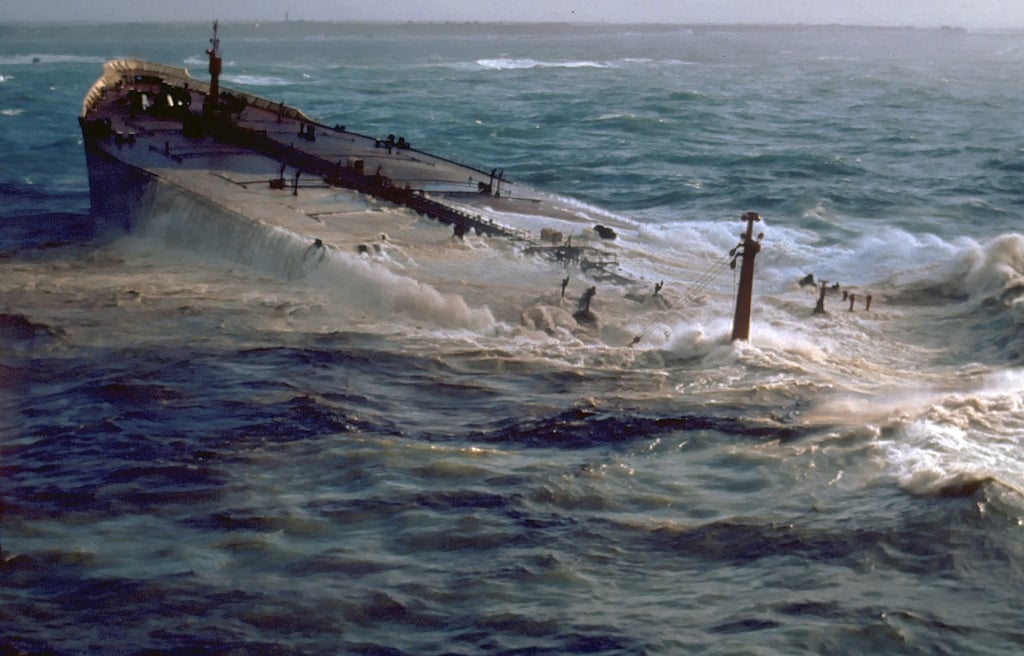Amoco Cadiz Oil Spill: A Turning Point in Marine Environmental Protection
The Amoco Cadiz Oil Spill of 1978 stands as one of the most catastrophic oil spill disasters in history. For the Philippines—an archipelago highly dependent on healthy marine ecosystems—the lessons from this tragedy are invaluable. At GS Oceanguard Inc., we believe that studying past oil spills is key to improving prevention, preparedness, and response in today’s maritime industry.
8/24/20252 min read


The Disaster Unfolds
On March 16, 1978, the Liberian-flagged supertanker Amoco Cadiz, owned by the American oil company Amoco, ran aground off the coast of Brittany, France, near Portsall. The vessel suffered a total steering gear failure in heavy seas, making it impossible to avoid the rocky coastline.
At the time of the grounding, the Amoco Cadiz was carrying 1.6 million barrels (around 220,000 tonnes) of crude oil bound for Europe. Within hours, the ship broke apart in violent waves, releasing its entire cargo into the English Channel.
Scale of the Spill
The Amoco Cadiz spill remains one of the largest oil spills in history.
Key facts:
Date: March 16, 1978
Location: Brittany, France
Volume Spilled: Approx. 220,000 tonnes of light crude oil
Length of Coastline Affected: Over 300 kilometers
Cause: Steering gear mechanical failure
Environmental Impact
The environmental consequences were devastating and long-lasting:
Marine Life: Massive die-offs of fish, shellfish, and plankton. Oysters, mussels, and sea urchins in the region suffered near-total loss in affected areas.
Birds: An estimated 20,000 seabirds were killed by oil contamination.
Coastal Ecosystems: Salt marshes, beaches, and rocky shores were coated in thick crude oil, some of which persisted for years.
Fisheries: The spill crippled Brittany’s fishing industry, with oyster farms and shellfish harvests shut down for years.
Tourism: Oil-polluted beaches caused significant economic loss to coastal communities reliant on visitors.
Legal and Policy Aftermath
The Amoco Cadiz disaster triggered major changes in global maritime law and oil spill response standards:
Liability and Compensation – The French government and affected communities sued Amoco. After a lengthy legal battle, a U.S. court ordered the company to pay over $200 million in damages.
Ship Safety Improvements – The disaster reinforced the need for improved vessel design, stricter maintenance standards, and better crew training.
International Conventions – It accelerated the adoption of stronger international regulations on oil spill liability, prevention, and preparedness, including updates to the International Convention on Civil Liability for Oil Pollution Damage (CLC).
Lessons for the Philippines
The Philippines shares key similarities with Brittany—extensive coastlines, vibrant fisheries, and dependence on maritime trade. An oil spill on the scale of the Amoco Cadiz in Philippine waters could be equally devastating, making preparedness and rapid response essential.
Key lessons relevant to the Philippines:
Proactive Maintenance: Vessel mechanical failures are preventable with strict maintenance and inspections.
Rapid Containment: Oil spill booms, skimmers, and dispersants must be available for immediate deployment.
Local Readiness: Ports, coastal towns, and oil facilities must maintain trained response teams and equipment stockpiles.
GS Oceanguard Inc.’s Commitment to Oil Spill Preparedness
At GS Oceanguard Inc., we support national and international oil spill readiness efforts by providing:
High-Performance Containment Booms – For offshore and nearshore oil containment.
Advanced Oil Skimmers – For efficient oil recovery in varied sea conditions.
Approved Dispersants – Formulations safe for use under Philippine regulations.
Oil Spill Response Kits – Customized for ports, ships, and coastal facilities.
Training & Simulation Drills – In partnership with government and industry stakeholders.
By equipping the Philippines with modern oil spill response solutions, we help ensure that the lessons from disasters like the Amoco Cadiz are never forgotten—and never repeated.
Conclusion
The Amoco Cadiz Oil Spill was a wake-up call to the world. It demonstrated that a single mechanical failure can lead to environmental, economic, and social catastrophe. Today, with better planning, equipment, and cooperation, such tragedies can be mitigated, if not entirely prevented.
At GS Oceanguard Inc., we stand ready to protect our seas—because prevention is always better than cleanup.

Location
3195 New Panaderos, Santa Ana, Manila, Metro Manila
Contacts
+63927 410 4369
info@gsoceanguard.ph

